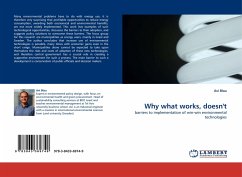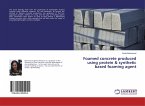Many environmental problems have to do with energy use, it is therefore very surprising that profitable opportunities to reduce energy consumption, awarding both economical and environmental benefits, are not more widely implemented. This work lists examples of such technological opportunities, discusses the barriers to their adoption, and suggests policy solutions to overcome these barriers. The focus group for this research are municipalities as energy users, mainly in Israel and Sweden. The author concludes that increase use of environmental technologies is possible, many times with economic gains even in the short range. Municipalities alone cannot be expected to take upon themselves the risks and costs of adoption of these new technologies, and therefore central government has a crucial role in creating a supportive environment for such a process. The main barrier to such a development is conservatism of public officials and decision makers.
Bitte wählen Sie Ihr Anliegen aus.
Rechnungen
Retourenschein anfordern
Bestellstatus
Storno








